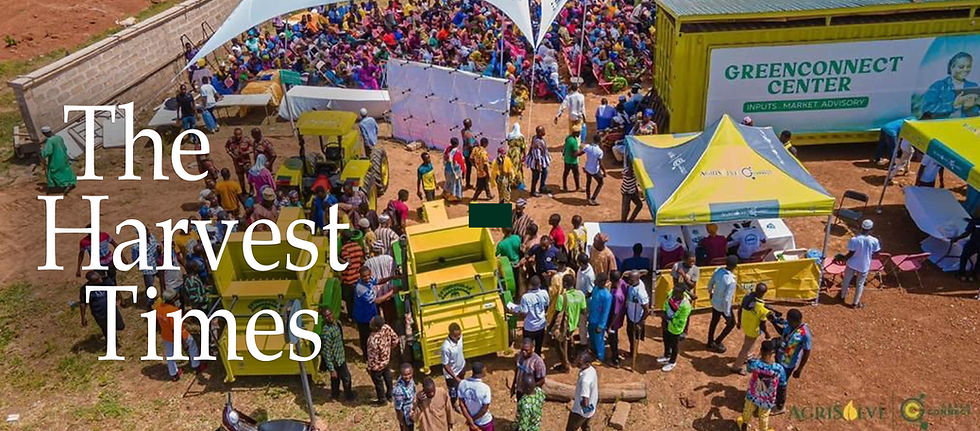Stephen Dimah: “Farming is a profitable venture – if you do it right.”
- Agrisolve
- Aug 5, 2023
- 3 min read
Updated: Aug 8, 2023
“People see farming as probably for those who have nothing ‘better’ to do, and many may prefer white-collar jobs. But farming is a profitable venture – if you do it right.”

40-year-old Stephen Dimah from the Sissali ethnic group is one of the only two educated children – who graduated from university – in his large family of 18 siblings.
Stephen works full time at a local microfinance institute and has risen up the ranks from a field officer to now a branch manager over the course of 9 years.
At the same time, Stephen engages in farming.
In fact, he says the income he makes from farming – of about 15 to 20 acres per season – is twice that of his full-time job in microfinance.
“The profit from farming is very nice,” he says.
“People see farming as probably for those who have nothing ‘better’ to do, and many may prefer white-collar jobs. But farming can be a profitable venture – if you do it right.”
Input credits have been a game-changer
Stephen has been farming for 15 years. In the past, he used to sell his produce to aggregators who would then sell it in the open market. However, four years ago, he joined Agrisolve’s outgrower scheme, which provided him with access to an input credit system.
Through this system, smallholder farmers like Stephen do not have to pay upfront for agricultural inputs such as seeds, chemicals, and fertilizers. Instead, they pay for these inputs with their produce.
“Before this, many of us here would either try to take a bank loan – if we can – or borrow from other people to purchase inputs,” he says.
“Imagine this. If you take a loan from the bank and pay an interest rate of, say 4 percent per month, a loan size of 10,000 cedis means you’d have to pay 400 cedis per month, which amounts to 3,600 cedis per year – it’s a lot,” he adds.
If farmers produce extra, Agrisolve is open to buying the additional produce from them, says Abdulai Is-hak Tuurosung, one of Agrisolve’s business development officer.
Additionally, it’s faster selling to Agrisolve instead of to the open market, Stephen says, where he may have to keep holding inventory until he finds a buyer.

Outgrowers shared how they benefitted from Agrisolve's input credit system and challenges that remain in farming
Wrong farming techniques corrected
Furthermore, Stephen found the advice given by Agrisolve’s extension officer valuable.
“In the past I would sow two maize seeds per hole, thinking it could increase my yield, which in fact I should only sow one,” he shares, adding that the distance between each should be an inch.
“I also used to apply fertilizers just once, when in fact I should apply about two weeks after sowing, and once more in the second month.”
He has seen his yields improve, from bagging 8 to 10 bags of maize per acre, to now about 25 bags.
In Ghana, it’s common for one to hold multiple jobs, as also seen in the case of Eric, a young farmer who also works as an electrical-meter reader for the Volta River Authority. An electrical engineering graduate, he also does wiring works and sells light bulbs.
Despite the challenges of farming, many continue to engage in it because it provides a means of securing food and supporting their families.
“Farming is tough. Honestly speaking, if I had a choice I might leave. You need a lot of energy; the sun is hot. But if I don’t do it, I can’t get food and I can’t feed my family.”
When asked if he’d want his children to go into farming, he says “only if they have proper education and tested knowledge in the field to do it.”
(Cover photo: Stephen Dimah sharing his thoughts on farming. Photo taken in Walembelle, Upper West Region of Ghana)



Comments